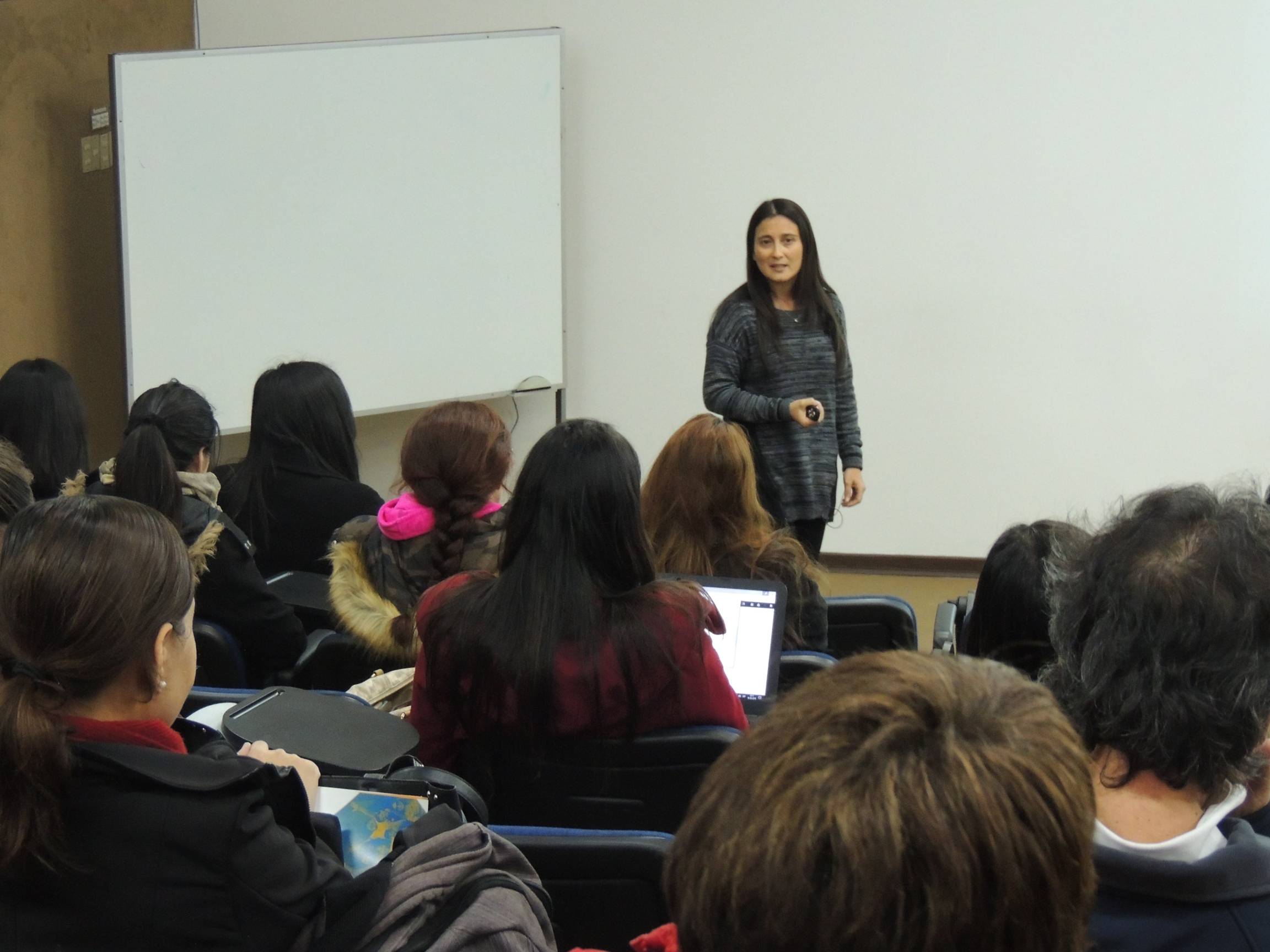Exploring Education Agency Abroad
Exploring education agency abroad
by Emma Carberry
Outreach Coordinator, College of Education
August 14, 2018
This June, Dr. Kiyomi Sánchez-Suzuki Colegrove, assistant professor in the Curriculum and Instruction Department spent three days in Antofagasta, Chile as a visiting scholar to the Universidad Católica del Norte (UCN). In March, a delegation from UCN came to Texas State University and Colegrove had a conversation with Guillermo Guevara, a colleague in UCN’s School of Education, about the high percentage of immigrants who are coming to Chile and the work that UCN is doing to prepare educators to work with immigrant populations. Colegrove, whose own work focuses on Latino immigrants in the U.S. and the agency that immigrant children have (or don’t have) in their education, was intrigued by this work. A couple of months later, she followed up with Guevara over the phone, and the School of Education invited her to visit the university to learn more about the project.

UCN’s project is called “Formación Ciudadanía,” or “Formation of Citizenship.” It is structured around lending support to public schools in Antofagasta to implement a new curriculum put forward by the Secretary of Education in Chile. Since 2016, various stakeholders have been working to execute the plan through various workshops. During Colegrove’s time at UCN, the university hosted it’s first Day of Citizen Education, or Jornada de Educación Ciudadana, which brought together over 35 educational establishments in the Antofagasta region, which was the culmination of their work thus far. At this event, Colegrove was able to speak with teachers, children and parents about their perspectives on the project and the community in Antofagasta.
After learning about UCN’s work with improving educational experiences for immigrants, Colegrove was invited to present her own work in a School of Education Colloquium. She discussed her research surrounding the parents of Latino immigrants and their ideas of agency and equity in their young children. Colegrove focuses on agency in her research because, she says, “In the U.S. certain children have opportunities to enact their agency in the classroom, but other children don’t,” and according to her research, those who don’t are usually immigrant children and children of color. In her research, she aims to focus on what capabilities children can develop if they have more agency in their learning experiences.
While in Chile, Colegrove was able to discuss agency and equity not only with her UCN colleagues, but also with Latino parents in the community. She conducted interviews with families there which will help her to round out her existing Chilean sample and add new perspectives to her research. In the past, she has interviewed central Chilean parents and believes that looking at these two groups in tandem would be valuable in gaining “a better picture of what it means to be a parent in Chile,” as well as an understanding of Chilean parents’ thoughts on educational agency.
Overall, Colegrove’s favorite part of the visit was learning from the experiences of her colleagues there. She enjoyed gathering more information about their teaching and research, as well as how their research is put into practice to impact the local community. She says that there are many possibilities for UCN and Texas State faculty to work together in the future and there are several ideas she’d like to explore further with her colleagues in Chile.